
Q: As you do research on the extended mind, what do you think about the role of mirror neurons?
I don’t refer to mirror neurons. I am not convinced that we know enough about how they operate and how central they are to the processes of empathy and communication. And I don’t think it is necessary to understand. I say this in the book: Humans naturally engage in mimicry, subtle automatic miming of each other, when talking face to face. It’s by making those expressions and gestures, and by assuming the postures of the other person, that we then read off our own bodies what those postures and expressions make us feel. That’s how we get access to what another person is feeling and thinking. Research has found that people who are more attuned to their own internal signals can be more empathetic because they then feel more acutely the signals they read from the other person. I am fascinated by processes like this in which humans bridge the divide between us, so we are not as separate as we think we are. So in my case I didn’t feel the need to draw in the research about mirror neurons.
Q: You also touch upon sensing, labeling and verbalizing of emotions. One of the core practices of many meditation systems, including Heartfulness, is journaling at the end of a meditation session.
Oh, interesting!
Q: We observe ourselves at the physical, mental, emotional, and spiritual levels, and train ourselves in the vocabulary of journaling. We develop the capacity to have one eye always looking inward while looking at another person. We learn to become adept at witnessing through meditation and journaling.
Diese Geschichte stammt aus der October 2021-Ausgabe von Heartfulness eMagazine.
Starten Sie Ihre 7-tägige kostenlose Testversion von Magzter GOLD, um auf Tausende kuratierte Premium-Storys sowie über 8.000 Zeitschriften und Zeitungen zuzugreifen.
Bereits Abonnent ? Anmelden
Diese Geschichte stammt aus der October 2021-Ausgabe von Heartfulness eMagazine.
Starten Sie Ihre 7-tägige kostenlose Testversion von Magzter GOLD, um auf Tausende kuratierte Premium-Storys sowie über 8.000 Zeitschriften und Zeitungen zuzugreifen.
Bereits Abonnent? Anmelden

A Flower from THE HEAVENS
November 14 is Children's Day. This year, SARA BUBBER brings to you a world of forests, magical flowers, festivals, and some animals you may have never seen.

Meeting Phenomenal Women
The author, CHITRA BANERJEE DIVAKARUNI, is interviewed here by TARA KHANDELWAL and MICHELLE D'COSTA about her books on mythology, like The Palace of Illusions, which is a retelling of the Mahabharata from Draupadi's point of view, and The Forest of Enchantments, which is a retelling of the Ramayana, from the eyes of Sita. And there's The Last Queen, which is about Rani Jindan's life.
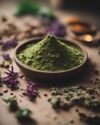
HERBAL TOOTH POWDERS: Rediscovering Ayurveda's Natural Secrets
SRAVAN BANDA presents a natural herbal tooth powder, offering a holistic approach to oral hygiene, harnessing the power of medicinal herbs.

The Dance of Light and Shadow Lessons from the Dolomites
ALAIN DESVIGNE explores the Dolomites, listed as a UNESCO World Heritage Site in 2009.
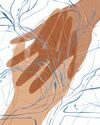
FINDING OUR WAY
A Polynesian Explorer's Journey of Discovery
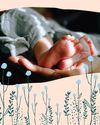
The First Imprint: Understanding PTSD
CHRISTIANNA DEICHMANN is the Director of Education at the Association for Pre and Perinatal Psychology and Health (APPPAH), where she educates both professionals and parents on fostering the most nurturing environments for welcoming new life into the world.

The Tipping Point
In this final conversation of the series, J. FREDERICK ARMENT continues to talk with CHRISTINE JONES about promoting peace in the world.
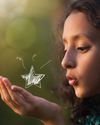
UNLOCK YOUR POTENTIAL
Take The Brighter Minds Path To Cognitive Development

The Intrinsic Goodness of the Heart
DAAJI shares some thoughts on heartfelt acceptance and all it has to offer. He says, \"It is the heart's intrinsic goodness that allows us to accept everything as part of us.
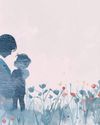
How Does Fear Affect Our Roles as Mothers? - Neelam Shivhare explores some of the great ancient texts of India on motherhood, compares the behavior of Kaikayi and Yashoda
Neelam Shivhare explores some of the great ancient texts of India on motherhood, compares the behavior of Kaikayi and Yashoda, and realizes the importance of removing fear from our hearts in order to nurture our children.For young women like myself, who are future mothers, I trust we are on the path of becoming selfaware and brutally honest with ourselves. We are creative beings, never forgetting the gifts with which we have been bestowed— the love and tenderness, natural instincts, and intuition to feel the right path. It all lies in the mysterious meanderings of the heart. Are we really listening to our hearts, or confusing the bombarding information on social media with reality?